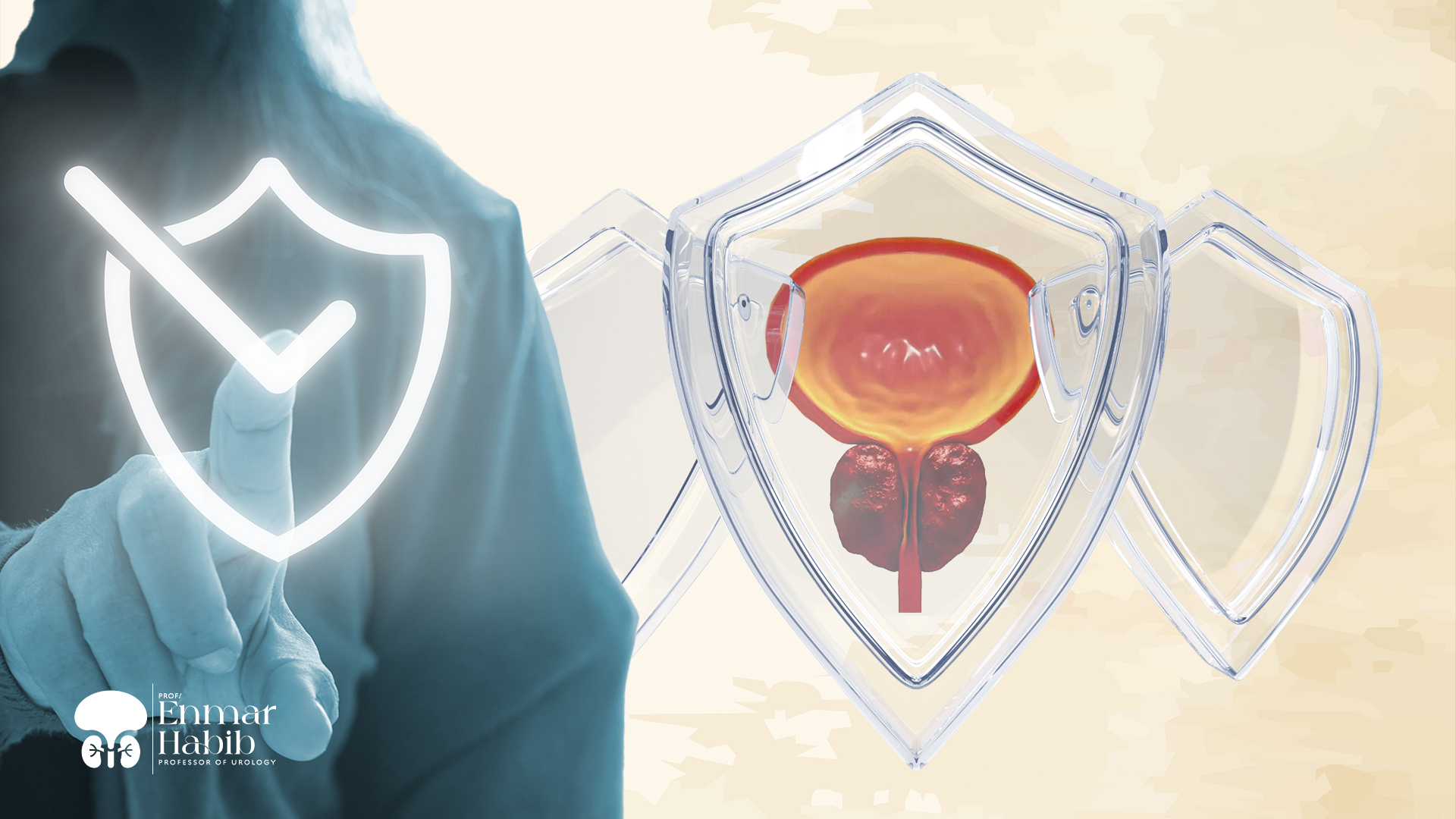Your Guide to Prostate Enlargement Prevention
Home Surgery Tips Your Guide to Prostate Enlargement PreventionYour Guide to Prostate Enlargement Prevention
Many people wonder about ways to prevent benign prostatic hyperplasia (BPH). But is this common condition truly preventable?
Share:

Your Guide to Prostate Enlargement Prevention
When a man hears that a relative has an enlarged prostate, he becomes fearful and seeks ways to prevent prostate enlargement, especially since it is one of the most common diseases among men. But are there ways to prevent or delay the onset of prostate enlargement? Your guide to preventing prostate enlargement
What is the prostate?
• The prostate is a small gland in the male reproductive system. The prostate wraps around the urethra and produces semen. The muscular movement of the prostate helps to propel semen during sexual intercourse.• An enlarged prostate occurs when cells multiply and increase in size, compressing the urethra and restricting urine flow.
Ways to prevent prostate enlargement:
Prostate enlargement cannot be prevented. As a person ages and testosterone production increases, especially between the ages of 50s and 60s, the chances of developing an enlarged prostate increase. For this reason, there is no way to prevent it. However, there are some ways that can relieve or minimize the symptoms of an enlarged prostate, as well as prevent it from getting worse:1. Minimize fluid intake, especially before leaving the house or bedtime.
2. Limit caffeine consumption, as it increases the urge to urinate and may irritate the bladder.
3. Avoid holding in urine for too long, to avoid increasing pressure on the bladder. Urine retained in the bladder due to prostate enlargement can lead to urinary tract infections or painful bladder stones.
4. Avoid feeling cold, as cold temperatures can make the urge to urinate more urgent.
5. Avoid constipation.
6. Avoid sexual arousal without ejaculation.
Can lifestyle changes prevent prostate enlargement?
1. Lifestyle changes can't prevent prostate enlargement, but they can be beneficial to prostate health. Exercise and a healthy diet can help with weight control, which is good for the prostate. Some exercises can also help your bladder empty at a normal rate, such as exercises to strengthen your pelvic muscles.2. A diet rich in certain vitamins and minerals can keep your prostate healthy, and being overweight is another risk factor for the condition. Making balanced food choices can help you maintain a healthy weight. Some of these diets include:
• Food rich in zinc sources: This mineral is essential for prostate health, according to some global studies. Zinc in food is usually easier to absorb than pharmaceutical zinc supplements. Therefore, it is advisable to eat some zinc-rich foods, such as sesame seeds and almonds.
• Omega-3-rich foods: High levels of omega-3, combined with regular exercise, help with weight reduction. These healthy fats may also protect against certain diseases such as cardiovascular disease, cancer, and may reduce the risk of inflammation. Some foods that contain omega-3 include fish, ground flaxseeds, and chia seeds.
• Vitamin C-rich foods: Vitamin C is a powerful antioxidant that the body needs to fight aging and cancer. Some foods that are rich in vitamin C include bell peppers, broccoli, and oranges.
• Eat plenty of vegetables: Green leafy vegetables are especially important because they are rich in antioxidants. Certain vegetables, such as broccoli, may also reduce the risk of developing prostate problems.
In conclusion, there are no guaranteed ways to prevent prostate enlargement, but following certain instuctions can help relieve symptoms and prevent them from worsening.
Dr. Enmar Mohamed Habib, Professor of Urology and Pediatric Urology at Cairo University and Fellow of McGill University, Canada, recommends regular and early prostate check-ups. These play a key role in maintaining prostate health and increasing the chances of effective treatment for prostate enlargement using the latest advanced technologies, such as the Holmium laser and Rezūm therapy.